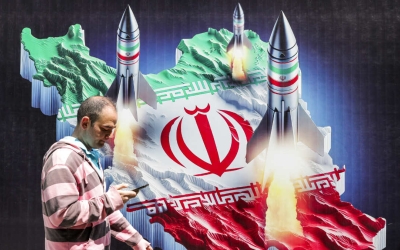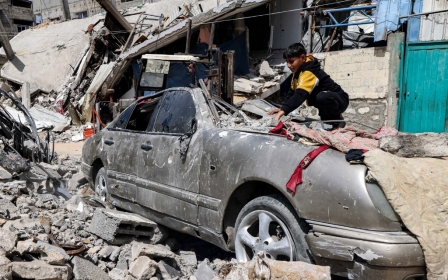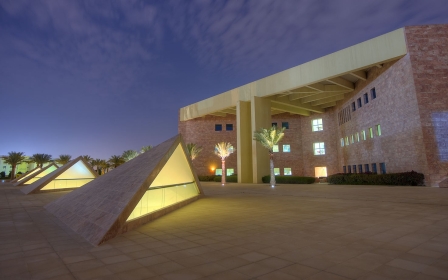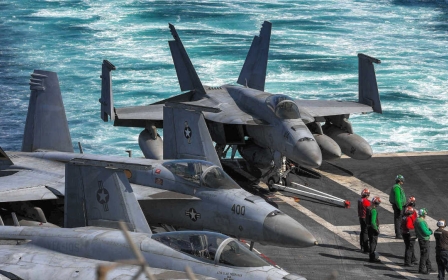War on Gaza: Qatar slams Democratic congressman calling on US to 'reevaluate' ties
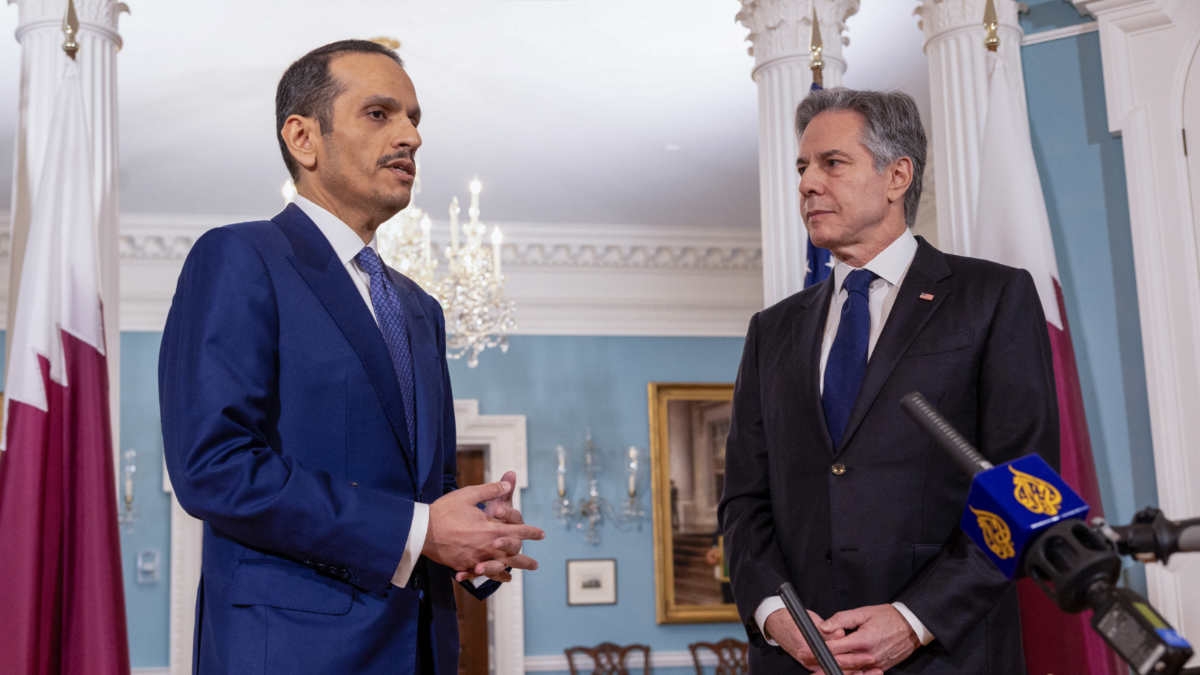
Qatar's embassy in Washington denounced senior Democratic lawmaker Steny Hoyer for threatening to "reevaluate" the US relationship with Doha over the inability of Hamas and Israel to reach a hostage deal.
"We share his (Hoyer's) frustration that Hamas and Israel have not reached an agreement on the release of the remaining hostages," Qatar's embassy said in a statement.
"But blaming and threatening the mediator is not constructive, especially when the target is a friend and Major Non-NATO Ally that presently hosts 10,000 US troops and America's largest military presence in the Middle East."
Qatar's rebuke of Hoyer came after the Democratic Congressman released a statement on Monday saying that Hamas had responded to Israel’s latest truce offer with “absurd demands and unfeasible requirements."
He said Hamas "sought to use its intermediary Qatar" to extract greater concessions from Israel, adding that Qatar finances, backs, and houses the US-designated terrorist organisation.
The claims riled the small, energy-rich Gulf monarchy which has long had to fend off criticism in the West.
For years, it has faced charges that it was too cosy with groups like the Muslim Brotherhood, while its state-owned media channel, Al Jazeera, has been attacked by supporters of Israel for its coverage of Palestine.
'Bad faith'
When Republican Senator Ted Budd accused Qatar in November of having a "pro-Hamas policy" that was a "significant liability", Qatar's ambassador to the US, Meshal bin Hamad al-Thani, took the lead and penned an opinion article in the Wall Street Journal, stating that his country doesn't endorse Hamas.
"The criticism from lawmakers and some US officials was seen as coming in bad faith by the Qataris, particularly at a time when they are negotiating on the US’s behalf," Kristian Coates Ulrichsen, an expert on the Gulf at the Baker Institute, previously told MEE.
Hamas was based in Damascus, Syria, until 2012, when it fell out with the Syrian government over the country’s civil war.
Qatar agreed to host the exiled leadership at the request of the US to maintain an indirect line of communication with the group, Qatari officials say.
Before 7 October, Qatar also coordinated directly with the US and Israel to finance electricity for Gaza, fund reconstruction projects and pay impoverished civil servants salaries.
Those payments were made with the approval of Prime Minister Benjamin Netanyahu, and analysts say it was beneficial for Israel in keeping the occupied West Bank and besieged Gaza Strip divided between Islamist Hamas and secular Fatah, the main party in the Palestinian Authority.
'Saviour to the Biden administration'
While Qatar is home to some Hamas officials, it also maintains indirect ties with Israel and is a linchpin in the US' security system in the region.
MEE reported on Monday that Qatar’s Al Udeid air base was one of the locations from which the US scrambled fighter jets to shoot down missiles and drones fired by Iran at Israel.
In November, Qatar, alongside Egypt, was able to leverage its ties with the US, Israel and Hamas to seal a temporary truce and deal for some of the hostages in Gaza.
Over the last five months, efforts to strike a new hostage deal have stalled, frustrating the Biden administration’s push to reduce tensions and shift focus to post-war plans for governing Gaza.
Hoyer said that if Qatar did not exert pressure on Hamas to strike a hostage deal -including expelling Hamas's political leader - the US "must reevaluate its relationship" with its Gulf partner.
Qatar said that "neither of the warring parties does anything for Qatar", referring to Hamas and Israel, "but it is useful to remember that Qatar’s mediation role exists only because we were asked by the United States in 2012 to play this role since, regrettably, Israel and Hamas refuse to speak to each other directly."
Analysts and diplomats say sealing a ceasefire to the Israel-Palestine war would be a major victory for Qatar, helping it realise its ambitions as being the Middle East's troubleshooter after its role as mediator in Afghanistan and supplier of liquefied natural gas to Europe after the Russian invasion of Ukraine.
"Qatar has come through as a saviour to the Biden administration time and again," Kirsten Fontenrose, a former head of Gulf affairs at the White House, told MEE, previously. "The [November] hostage deal has just cemented that role."
Middle East Eye propose une couverture et une analyse indépendantes et incomparables du Moyen-Orient, de l’Afrique du Nord et d’autres régions du monde. Pour en savoir plus sur la reprise de ce contenu et les frais qui s’appliquent, veuillez remplir ce formulaire [en anglais]. Pour en savoir plus sur MEE, cliquez ici [en anglais].


